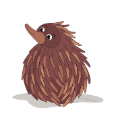Desexing Companion Animals
Desexing means that an animal cannot have babies, also known as breeding. Desexing is the most important way for pet (also known as companion animals) owners to avoid contributing to the thousands of unwanted animals that populate animal shelters across Australia.
Did your family or friends adopt a companion animal recently? If your pet has not been desexed yet, now is the time to get it done! Speak to your vet and organise this simple operation.

By six months of age, many types of animals can already have babies. A lot of people wait too long to get their pet desexed, thinking their new pet is still just a baby themselves. But before they know it, they have a litter of tiny babies that they’ll need to care for and find homes for. Finding a loving, responsible home for each animal isn’t always that easy and vet care for a litter of animals can quickly get very expensive.
What’s more, if those young animals don’t get desexed, they will have babies too, adding to the population of animals without loving forever homes.
RSPCA desexes every animal adopted from our RSPCA Centres, even those as young as eight-weeks-old.
We also recommend that people have their current companion animals desexed as soon as possible. Remember, it is an easy procedure for your veterinarian to perform and most animals recover very quickly.
For more questions about when to have your companion animal spayed or neutered, speak with your veterinarian.
































